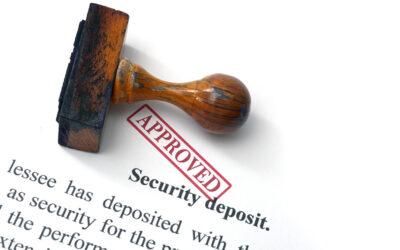Massachusetts affords tenants significant legal protection regarding the security deposit paid to a landlord at the commencement of a tenancy. Although landlords may interpret the security deposit statute as draconian, it does not change the fact that landlord’s must be judicious in precisely following the statute once they have the tenant’s security deposit on hand.
When a tenant pays to the landlord a security deposit, the landlord must put that deposit into a separate, interest-bearing account in a bank in Massachusetts. A receipt must be given to the tenant within 30 days of receiving the security deposit, which must include the name and location of the bank holding the security deposit, the amount and the account number. If the security deposit is held by the landlord for a period of one year or longer, the landlord must pay to the tenant each year five percent interest on the security deposit, or such lesser amount of interest that has been received by the bank.
There are several ways in which a landlord’s mishandling of the deposited amount could result in the landlord forfeiting any portion of the security deposit, including:
- Failing to deposit the security deposit as outlined above;
- Failing to provide the tenant within 30 days after the termination of occupancy an itemized list of damages to the property, if any;
- uses in any lease signed by the tenant any provision which conflicts with any provision of the statute concerning security deposits and attempts to enforce such provision or attempts to obtain from the tenant or prospective tenant a waiver of any provision of this section;
- Failing to return to the tenant the security deposit or balance thereof, together with any interest, within 30 days after the termination of the tenancy.
According to the statute, if the landlord fails to comply with #1 or #4 above, the tenant shall be awarded three times the amount of the security deposit, plus interest in the amount of five percent from the date when such payment came due, together with any court costs and attorney fees.
Landlords must follow the statute strictly in order to avoid liability to their tenants. Keeping pristine financial records of a tenant’s security deposit, and returning or deducting it in compliance with the law, will put a landlord in an advantageous position if a controversy arises after a tenancy is concluded.
If you have questions or would like to discuss these matters, please contact Drayton Law at 508-618-7270.
This blog is for informational purposes only. It should not be considered legal advice. All those who read this blog should seek the advice of a professional before taking action based upon any information provided herein.








